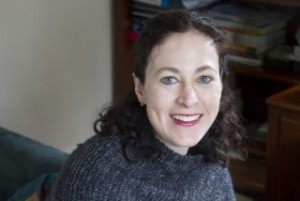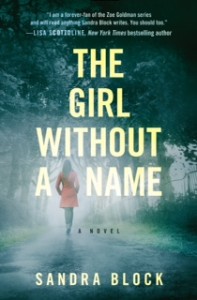Being a Neurologist and Writer
 I’ve always wanted to be a writer, so I became a neurologist.
I’ve always wanted to be a writer, so I became a neurologist.
In case this isn’t intuitive, let me explain.
For years, I struggled with the decision to become a doctor or a writer. (Well, when I was six, I wanted to be a professional jump roper, but soon found out this wasn’t a viable career option.) Jumping ahead to high school, I took poetry and neurobiology electives, writing sestinas while mapping out the cortex. In college, I was an English major, but hedged my bets with pre-med. I was torn between two lovers, feeling like a fool…and finally something had to give. So I took the easy route, and went to medical school.
Some might look at the anatomy and biochemistry tomes and wonder about my word choice. Maybe “easy” isn’t the right word, but it was the road more traveled, with fewer unexpected potholes and bumps along the route. In four years, I’d own a paper with MD on it. I’d have a trade and could hang up a shingle.
What I didn’t realize is just how much I would miss writing, how hard it would be to turn off that word faucet in my brain. You can ignore your heart’s longing, but at your heart’s peril. But ironically, I found that medicine was not the end of writing for me – it was the beginning. Doctoring not only helped me become a writer, it gave me something to write about.
Mystery.
The leap from doctor to mystery writer isn’t all that extreme. As a doctor, I solve mysteries and write about them every day. For instance, let’s say a fifty-six-year-old female comes in with back pain. Sounds simple enough. Right away, you’re thinking lumbar disc herniation. Write a script for naprosyn, physical therapy, eventually maybe an MRI. You can reassure her the pain will spontaneously resolve in 90% of cases.
But sometimes, back pain is not so simple. What if your patient is a twenty-two-year-old male complaining of boring pain in the middle of the back? Now, we’re looking at something completely different, and alarm bells should be ringing. The patient mentions his legs feel “like noodles” when he walks, and adds that he’s been running fevers on and off all week. When you notice bumpy scars on his arms, he admits to using IV drugs “socially.”
This is not the time to talk about drug addiction or naprosyn or PT scripts. This is time to send him in an ambulance for a stat MRI and neurosurgery consult for a suspected spinal abscess which could 1) seed his blood and cause sepsis and death or 2) compress the spinal cord and cause paralysis.
We can all agree that either outcome would be horrific. This is the kind of drama that makes shows like “ER” and “House” so enticing. The hospital world can indeed be full of intrigue, with physicians solving mysteries that make the difference between life and death.
I won’t lie to you. It’s not always like this.
 Some days are monotonous. As a sleep physician, I see my share of sleep apnea patients who “don’t want one of those damn machines.” But then again, I may also see a patient who’s spouse complains about his “annoying sleep habit of bouncing like a bunny a hundred times per night” and diagnose these episodes as nocturnal frontal lobe seizures.
Some days are monotonous. As a sleep physician, I see my share of sleep apnea patients who “don’t want one of those damn machines.” But then again, I may also see a patient who’s spouse complains about his “annoying sleep habit of bouncing like a bunny a hundred times per night” and diagnose these episodes as nocturnal frontal lobe seizures.
Or I may have patient with restless legs syndrome who also has kidney failure, diabetes, and has already failed two of the first-line medications. I now must choose not only an effective medication, but also one that won’t worsen the other medical problems or interact with a current list of fifteen medications. Every day cases can still turn out to be brain teasers.
After solving mysteries all day, it seemed only natural to write about them. And as doctors, we are writing every day. After establishing a diagnosis and a plan, we write about it. In precise language filled with colorful Latin, we document the case, punching it up with patient quotes, the foreshadowing of past medical history, and the plot twists that life naturally throws in. Your consultation argues and explains your reasoning not only to other doctors, but also to the patient themselves (if they request records) or even the legal system if problems arise.
The final step from neurologist to suspense writer is switching the point of view. Instead of decoding mysteries, I am now creating them. As a doctor, I examine patients and try to solve their mysteries. As a writer, I lay out the mystery for readers to solve. Stealing the drama and psychological suspense from the hospital setting, I invite readers to take a peek inside, and make their own diagnoses.
After twenty years, I finally figured out the answer to my own life’s mystery: medicine or writing. And the clues were staring me in the face the whole time.
I could be both a doctor and a writer. I never really had to choose.
—
Category: Contemporary Women Writers, On Writing
Comments (4)
Trackback URL | Comments RSS Feed
Sites That Link to this Post
- Being a Neurologist and Writer | WordHarbour | December 3, 2015































Hi Sandra!
The fascinating intersection between science/medicine and writing explains a lot in my own journey. I chose a focus in scientific perspectives and creative writing while in college because the nature of science is endless curiosity, observation, theory, experimentation, and ultimately-an outcome. I love that scientific facts can shift as new information becomes available. Science is, in a way, storytelling. The medium is different, the goal is the same: describe the world in a ways that contributes something new to our understanding of it. Thank you for sharing your experiences and journey! A wonderful read on a rainy day in Minneapolis!
Very enjoyable and comforting. I couldn’t chose between writer or scientist so I became a chemist and write fiction about scientists. There are times when I wonder which I really am. Which side I love more. Thanks for reminding me I don’t have to pick just one.
Thank you so much for this article. I felt as though I was reading my own thoughts! I was always torn between being a doctor or a writer and realized, several years ago, I don’t have to choose. Now I’m a psychiatry resident and get to see so many facets of the human mind. It’s tough to write at the level I want during training but I’m excited to keep working towards more of a balance between medicine and writing. Best wishes to you and thank you for the inspiration!